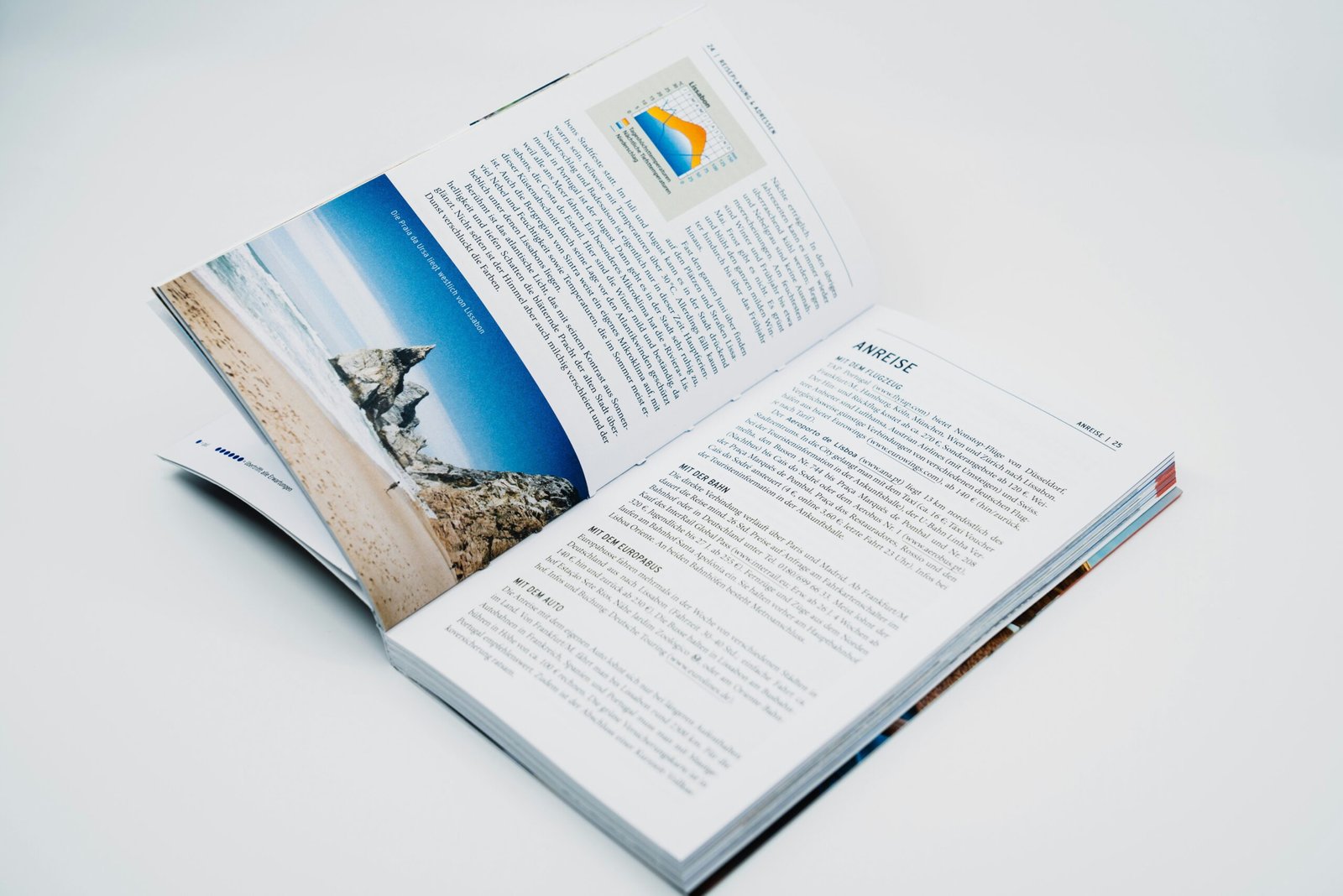
Introduction to Traveling in Morocco
Morocco, a nation at the crossroads of Europe and Africa, boasts a unique cultural landscape defined by its rich history, diverse geography, and vibrant traditions. From the snow-capped peaks of the Atlas Mountains to the sprawling deserts of the Sahara and the bustling markets in cities such as Marrakech and Fes, the country offers travelers a tapestry of experiences that reflect its multifaceted identity. The geographical diversity—from coastlines to mountainous terrain—provides numerous opportunities for exploration, catering to adventurers, culture enthusiasts, and leisure travelers alike.
Travel holds a significant place in Moroccan culture, embodying not only a means of transportation but also a profound journey into the heart of its customs and way of life. This is evident in the country’s famous hospitality, where locals often welcome visitors, offering insights into their traditions and daily routines. In Morocco, travel encourages profound connections, fostering understanding between cultures and enriching the visitor’s experience.
With the growing interest in travel within Morocco, it becomes essential to emphasize the advantages of safe and comfortable travel. Navigating the diverse options—be it trains, buses, or private tours—can greatly enhance one’s journey, ensuring an enjoyable exploration of this captivating region. By prioritizing safety and comfort, travelers can immerse themselves fully in local cultures, savor the delicious cuisine, and appreciate the stunning landscapes without undue stress or concern.
The unique experiences that await in Morocco, paired with careful travel planning, contribute to a memorable adventure. Therefore, as you prepare to embark on your journey through this enchanting country, understanding its cultural nuances and geographical variety will be invaluable in creating a seamless and pleasurable travel experience.
Understanding Morocco’s Transport Options
Morocco offers a diverse range of transportation options to suit the needs of travelers, whether they seek convenience, affordability, or adventure. Understanding these modes of transport is essential for planning a seamless journey across this vibrant country.
One of the most popular and economical ways to travel within Morocco is by bus. The national bus company, CTM, provides comfortable and reliable services connecting major cities and towns. Buses are an excellent choice for budget travelers, offering a scenic way to explore Morocco’s landscapes. However, it is worth noting that bus travel can be time-consuming, particularly on longer distances, due to frequent stops.
Taxis are another common transport option, categorized into two types: petit taxis and grand taxis. Petit taxis are typically found in urban areas and can accommodate up to three passengers. They operate on a meter system but may require haggling for longer distances. Grand taxis, which can hold up to six passengers, are often used for intercity travel, offering a more flexible schedule. While taxis provide door-to-door service, travelers should be cautious about verifying prices beforehand to avoid potential misunderstandings.
For those who prefer rail travel, the ONCF (National Office of Railways) operates a modern train system that connects major cities such as Casablanca, Marrakech, and Tangier. Train travel is a comfortable and picturesque way to experience Morocco, with amenities like dining cars available on certain routes. Furthermore, trains are generally punctual and can be a faster alternative to buses for longer journeys.
Finally, internal flights offer a quick solution for covering extensive distances, particularly for travelers heading to remote areas such as Agadir or Essaouira. Several airlines operate regular flights within Morocco, making it a convenient option for those with time constraints. However, flight availability may vary, and travelers should consider booking in advance, especially during peak tourist seasons.
In conclusion, each transport option in Morocco presents unique advantages and challenges. By assessing their needs and preferences, travelers can choose the most suitable mode of transport to enhance their Moroccan adventure.
Staying Safe While Traveling in Morocco
Traveling to Morocco can be an enriching and rewarding experience, yet ensuring safety is vital for an enjoyable trip. Being aware of your surroundings should be a priority for all travelers. Generally, Morocco is considered safe for tourists, but it is prudent to remain vigilant, particularly in crowded areas such as markets and transport hubs. Keep an eye on your belongings and stay alert to avoid becoming a victim of theft or petty crime.
It is also essential to be informed about common scams that target tourists in Morocco. These may include overcharging for services, fake guides, or unsolicited assistance. To protect oneself, establish a clear understanding of prices before engaging in any service or purchase. Trustworthy transportation options, such as licensed taxis or pre-arranged rides, can further decrease the chances of encountering fraudulent activities.
Health precautions are another critical aspect of ensuring safety during your travels. Travelers should consider purchasing travel insurance to cover any potential medical needs. It is advisable to consult a healthcare professional before your trip to discuss vaccinations and necessary medications. Staying hydrated and adhering to food safety practices—such as drinking bottled water and choosing well-cooked meals—can help prevent common travel-related illnesses.
To safeguard personal belongings, utilize money belts or secure bags, particularly when moving through bus stations or busy markets. When accessing public transport or navigating new areas, it is wise to travel in groups whenever possible. In case of emergencies, knowing local emergency numbers, such as those for medical assistance or the police, can be critical. By following these safety tips, travelers can significantly enhance their security and confidence during their Moroccan adventure.
Cultural Etiquette and Respect
Understanding and embracing the cultural etiquette of Morocco is essential for fostering positive interactions and ensuring a comfortable travel experience. As a nation with rich traditions and diverse customs, Morocco requires visitors to be mindful of local practices, especially regarding dress codes, greetings, and dining etiquette.
One significant aspect of Moroccan culture is modesty in clothing. Although the country is quite liberal in many urban areas, it is advisable for travelers to dress conservatively, particularly when visiting rural locations or religious sites. Both men and women should consider wearing loose-fitting and long garments. Women, in particular, may feel more comfortable wearing tops with sleeves and skirts or trousers that extend below the knee. By being mindful of attire, travelers demonstrate respect for local customs and values.
Greetings in Morocco often involve a warm handshake or a friendly embrace, depending on the circumstances. It is common to greet people by saying “Salam Alaykoum” (peace be upon you), to which the response is “Wa Alaykoum Salam.” When engaging with locals, it is customary to inquire about their well-being and family. Such gestures showcase respect and help build rapport, fostering a more enriching travel experience.
Dining in Morocco is another interaction laden with cultural significance. Meals are often shared, promoting a sense of community. Guests may find it respectful to wait for the host to begin eating before they partake in food offerings. Additionally, it is customary to eat with the right hand, as the left hand is considered impolite in many contexts. Expressing gratitude after a meal is a good practice, as it reinforces the bonds formed through dining.
By understanding and respecting these cultural nuances, travelers can navigate social norms with ease, leading to more meaningful interactions with locals and a deeper appreciation for Moroccan heritage.
Best Times to Travel Across Morocco
Morocco is a diverse country characterized by distinct geographical regions, each exhibiting unique climatic conditions that influence travel experiences. The coastal areas, including cities like Casablanca and Essaouira, enjoy a temperate Mediterranean climate, while the interior regions, such as Marrakech and Fes, have a semi-arid climate with hot summers and mild winters. The mountainous regions, particularly the Atlas Mountains, present cooler temperatures year-round and are often capped with snow in winter. Understanding these variations is crucial for determining the best times to visit different areas of Morocco.
Spring, which spans from March to May, is one of the most favorable seasons for travel across Morocco. The weather is mild and pleasant, making it ideal for exploring vibrant cities, lush valleys, and stunning landscapes. This period is particularly popular for outdoor activities and cultural explorations, as the blooming flowers and clear skies provide picturesque settings. It is advisable for visitors to book accommodations and transportation in advance, as this season attracts many tourists.
Summer, running from June to August, can be excessively hot in inland cities. Temperatures often exceed 40°C (104°F), making it less comfortable for sightseeing. However, this season sees an influx of festivals and local events, particularly in coastal cities, attracting international visitors seeking to experience Moroccan culture. For those who can tolerate the heat, early mornings and late evenings are the most suitable times for outdoor activities.
Autumn, from September to November, is another excellent time to travel across Morocco. The climate becomes cooler and more comfortable, making it a great period for exploration. Finally, winter, particularly December to February, is ideal for travelers looking to enjoy the snow-capped Atlas Mountains or experience the pleasant weather of southern Morocco. This season brings additional charm and a quieter atmosphere, providing a unique perspective on Morocco’s diverse offerings.
Navigating the Busy Markets and Souks
Morocco is renowned for its vibrant markets and souks, which offer a unique glimpse into the country’s rich culture and traditions. These bustling hubs can seem overwhelming to first-time visitors, but with a few strategies, navigating these markets can become an enjoyable and fulfilling experience. Firstly, understanding the importance of bargaining is crucial. It is a cultural norm in Moroccan souks, where vendors expect haggling over prices. Start by offering a price that is significantly lower than the initial quote; this sets the stage for negotiations and allows you to reach a more comfortable price point.
Additionally, selecting authentic goods is key to ensuring a satisfying shopping experience. Look for items that reflect the local craftsmanship; for example, traditional Moroccan pottery, textiles, and leather products. Engage with the sellers, inquire about the production method, and ask for the origin of the products to ensure they are genuine. Vendors often take pride in their goods and will gladly share their stories, which enriches the shopping experience. Moreover, it’s beneficial to explore different stalls, as prices and quality can vary widely in the same market.
When dealing with vendors, maintaining a respectful demeanor is essential. Be polite and patient, as this can foster a better interaction and potentially yield a better deal. If a vendor becomes too aggressive or pushy, do not hesitate to walk away. This is often a signal that they may reconsider their pricing to keep you engaged. Finally, immerse yourself in the atmosphere of these souks; take in the aromas, colors, and sounds. This enhances your experience and helps to alleviate any feelings of being overwhelmed. By implementing these tips, you can navigate Morocco’s markets with confidence and relish the unique treasures they offer.
Accommodations: Choosing Safe and Comfortable Lodging
When planning a trip to Morocco, selecting suitable accommodations is crucial for ensuring a safe and enjoyable experience. Morocco boasts a diverse range of lodging options, from luxury hotels to quaint guesthouses and traditional riads. Each type of accommodation offers unique benefits, and understanding these can help travelers choose according to their preferences and needs.
Luxury hotels can be found in major cities like Marrakech and Casablanca, often featuring modern amenities and extensive services. However, guesthouses and riads, which are smaller, more intimate establishments often housed in historic buildings, provide a more authentic experience. These accommodations frequently reflect Moroccan architecture and hospitality, giving travelers a taste of local culture.
When selecting where to stay, safety should be a top priority. Travelers should thoroughly research accommodations by reading reviews on trusted travel websites or forums. Pay close attention to the overall cleanliness and security of the property, as well as its location—staying in well-populated areas can enhance safety.
Additionally, consider the amenities offered. Comfort can greatly affect one’s travel experience, so look for accommodations that provide essential services such as Wi-Fi, air conditioning, or breakfast options. Understanding what is included in your stay can prevent any unpleasant surprises. Booking accommodations in advance can also secure the best rates and availability, particularly during the peak tourist season.
Lastly, communication is essential when making reservations. Engage with the property to clarify any doubts or inquire about specific needs, which can ensure a smoother check-in process. By selecting safe and comfortable lodging, travelers can focus on enjoying the breathtaking sights and experiences that Morocco has to offer.
Healthy Eating and Drinking Tips in Morocco
Traveling in Morocco offers an incredible opportunity to savor its rich and diverse cuisine. However, maintaining good health while enjoying local dishes is essential for a pleasurable experience. One of the first tips for healthy eating is to choose reputable restaurants. Opt for places that are popular among locals or have good reviews online, as this often indicates higher standards of hygiene and safety. Avoid street food stalls that lack cleanliness, as consuming food from these venues can expose you to foodborne illnesses.
Moreover, when dining at restaurants, always look for establishments where the food is freshly prepared and served hot. Buffets and pre-cooked meals can pose a risk, as they may have been left out for extended periods, providing an opportunity for bacteria to multiply. Additionally, ensure that fruits and vegetables are thoroughly washed or cooked, and avoid raw produce when possible unless you can confirm their safety.
Water safety is another critical aspect of healthy eating in Morocco. Travelers should avoid drinking tap water and instead opt for bottled water, which is widely available. When purchasing bottled water, check the seal to ensure it has not been tampered with. Avoid ice in drinks unless it is made from bottled or purified water. Furthermore, consider carrying a portable water purifier, especially if you plan on engaging in outdoor activities.
Street food can be an enticing part of Moroccan culture, but exercising caution is vital. If you choose to indulge in local snacks, preferring those that are served hot and cooked in front of you can reduce health risks. Overall, staying mindful of these healthy eating practices will help you enjoy the rich flavors and aromas of Moroccan cuisine while safeguarding your health during your travels.
Conclusion and Encouragement to Explore Morocco
Traveling across Morocco offers an enriching experience characterized by its vibrant culture, stunning landscapes, and historical significance. To ensure that each journey is both safe and comfortable, it is essential to follow the transport and travel tips discussed throughout this blog post. From understanding the local transportation options, such as trains and buses, to being aware of the best practices for navigating bustling markets and cities, travelers equipped with this knowledge are likely to have a more enjoyable journey.
Safety remains a paramount consideration when exploring Morocco. It is vital to stay vigilant, respect local customs, and engage authentically with the hospitality of Moroccan people. As travelers immerse themselves in diverse environments ranging from urban centers to serene rural areas, they should always bear in mind the importance of cultural sensitivity. Such awareness not only enhances personal experiences but also deepens the connections established with local communities.
Additionally, comfort should not be underestimated. Planning itineraries to allow for rest and ensuring access to reliable accommodations contribute greatly to an enjoyable travel experience. As one navigates through the streets of Marrakech, Fes, and beyond, comfortable transport arrangements can significantly enhance the overall adventure, allowing travelers to fully absorb the picturesque scenery and fascinating stories found throughout this remarkable country.
In conclusion, the allure of Morocco beckons those who seek both adventure and understanding. By prioritizing safety, comfort, and respect during travels, visitors can unlock the many treasures this country has to offer. We encourage individuals to take the leap, delve into the rich history, and embrace the diverse experiences that await. Each journey in Morocco promises to be memorable, with careful planning paving the way for rewarding adventures that linger in the heart long after the trip concludes.





